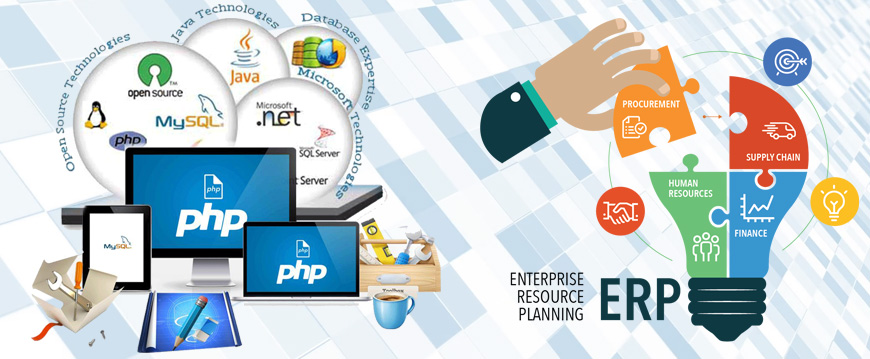

Enterprise resource planning software, most commonly referred to as ERP,integrates functions into one system designed to streamline daily business processes and information across an entire organization.
ERP, which is used as a great organizational and collaborative tool, can be implemented in two different ways: on-premise and in the cloud. Both on-premise and cloud ERP share similarities, but making a decision based on which you prefer is a material of what works best for the company and its employees.
In the simplest of terms, on-premise ERP is an enterprise resource planning software that is implemented in-house and maintained in a physical office space. On-premise isn’t accessed through the internet and cannot be used outside of a physical workspace. On-premise ERP, like the cloud, can be used on different mobile and handheld devices. It also has the ability to assist with an update production, marketing, sales and business finance processes.
The major, and most obvious, the difference between on-premise and cloud ERP is how it is implemented. Your chosen vendor will implement the system in-house on your company’s own computers and servers. This leaves your business’s IT team with control of the system. With on-premise ERP, you have ownership of the entire system once it is implemented.
On-premise ERP offers greater control over data and more customization. Users are able to select specific modules needed for their daily business. Modules include:
There is also the added security benefit of all of your information being stored in the house and not with a third party outside of business grounds.
If you are considering an ERP system for your business, you may have found yourself overwhelmed with the options. From numerous software vendors to different price points and whether on-premise or the cloud is the better fit for your business, there is a lot to consider.
When finalizing your plans to implement on-premise ERP software, begin with what works best with your company’s culture and work style.
Benefits of On-Premise ERP
It is important to find a software that works best for your business, while also keeping in mind that no software is perfect. There will be setbacks and we are here to help you avoid potential pitfalls.
You would be surprised at the different industries that use ERP software. While they may seem completely different, they all have a mission, which is to streamline their business processes and create open communication between numerous departments. Here are some of the industries that use ERP: